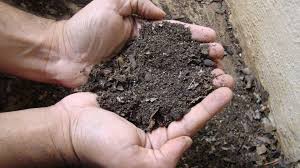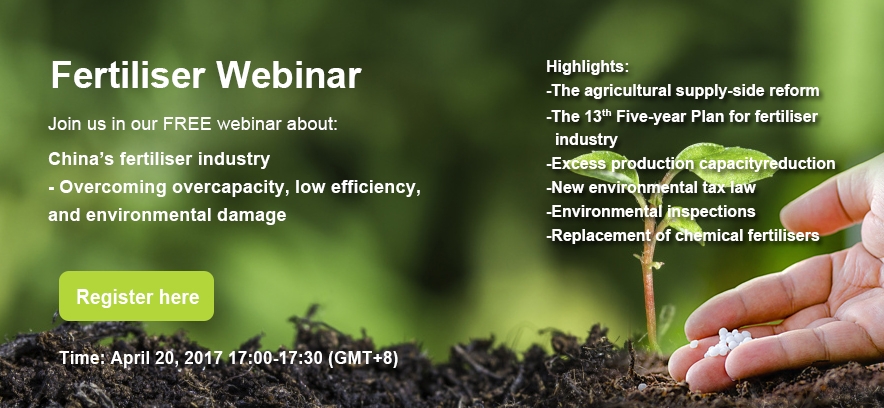In
the progress of establishing a more sustainable agriculture and stop the rising
consumption of chemical pesticides and fertilisers, China’s government has
revealed the plans to replace the chemical fertilisers used for tea, fruits,
and vegetables with organic fertilisers. This policy should lower the
dependence of China’s farmers on chemical fertilisers and increase efforts
against public health risks.

Source: Pixabay
According
to the Ministry of Agriculture of the People’s Republic of China (MOA), the use
of organic fertilisers as replacement of chemical fertilisers is one of the key
points in China’s agricultural supply-side structural reform. The plants which
are the main target for the trial fertiliser-replacement program are fruits,
vegetables, and tea crops.
Chinese
farmers are applying about 70 percent more chemicals on their crops than the
rest of the world, according to Global Times. Hence, China’s government is
increasing efforts for years to promote a green agriculture and educate the
farmers in the better use of crop protection. After all, the excessive use of
chemical fertilisers has damaged the soil, polluted the land and put consumer’s
health at risk.
The
MOA has set the goal to 50% replacement of chemical fertilisers by organic
fertilisers for the aforementioned crops. Due to the fact, that the fertilisers
for fruits, vegetables, and tea are accounting for about 40% of total
fertiliser use in China nowadays, the efforts of China’s government will lead
to a total replacement of chemical fertilisers by 20% until 2020.
The
Data from the MOA reveals a severe damage on China’s land which is exposed to
excessive chemical usage. This has led to a degeneration in about 40% of the
workable land in the country up to present.
According
to market intelligence firm CCM, the strategy will start with several pilot
projects in China’s most important planting areas. The most critical areas
hereby should replace chemical fertilisers by more than 50% till 2020, while
lesser important planting areas are supposed to increase the use of organic
fertilisers by about 20%.
After
the demonstration period in 2020, China wants to expand the replacement of
chemical fertilisers to the whole country. This would leave to a massive
decreasing usage of chemical fertilisers in China, according to the National
Bureau of Statistics. After all, China used 60.32 million tonnes of fertilisers
in 2015. The amount used for vegetables, fruits, and crops was accounting for
hereby for 24 million tonnes, thus 40% of the total usage. If China is able to
replace chemical fertilisers by 50% or more, a large reduction of 20% in total
will be the result.
Difficulties
However,
the MOA is facing several difficulties to realise the plan in the near future.
Although China is producing an annual amount of 16 million tonnes of organic
fertiliser, only 5 % are effective nutrient. Hence, it is impossible to replace
the aimed 5 million tonnes of chemical fertilisers with barely 800,000 thousand
usable organic fertilisers. Also, chemical fertilisers still are much cheaper than
their green alternatives and also easier to transport. After all, the
production of the same number of nutrients for organic fertilisers costs about
400% of their chemical counterparts.

In
addition to that, the main organic fertilisers are made of livestock manure,
which is containing a dangerous number of antibiotics, which are able to get
into the crops for human consumption.
According
to CCM, only an increasing focus on enhancing the production of commercial
organic fertiliser can effectively improve China’s organic fertiliser situation
and makes the plan likely to be realised in the near future. Other ways of
increasing organic fertiliser production, like straw incorporation, compost,
and green manure, obtain a much lesser opportunity for effective organic
fertiliser growth.
What’s
more, the worldwide bio fertiliser market is growing fast at present. Experts
are estimating the market value by USD1.66 billion till 2022. The huge growth
is the result of an increasing awareness towards healthy and sustainable
agriculture, as well as rising chemicals prices in the market. Furthermore, the
world market for organic food is booming as well, elevating the demand for
organic fertiliser in general. The organic food market is even rising faster
than fertilisers and may hit a value of USD305 million in 2022.
About CCM
CCM
is the leading market intelligence provider for China’s agriculture, chemicals,
food & ingredients and life science markets.
Do
you want to find out more about the fertiliser market in China? Try our
Newsletters and Industrial Reports or join our professional online platform today and get insights in Reports, Newsletter, and Market Data at one place.
For
more trade information of agrochemical products, including Import and Export
analysis as well as Manufacturer to Buyer Tracking, contact our experts in trade analysis to get your answers today.
Looking
for a convenient way to get comprehensive and actual information as well as a
platform to discuss with peers about the latest agrochemicals industry and
market trends? Simply subscribe to our YouTube Channel and join our groups on LinkedIn and Facebook.